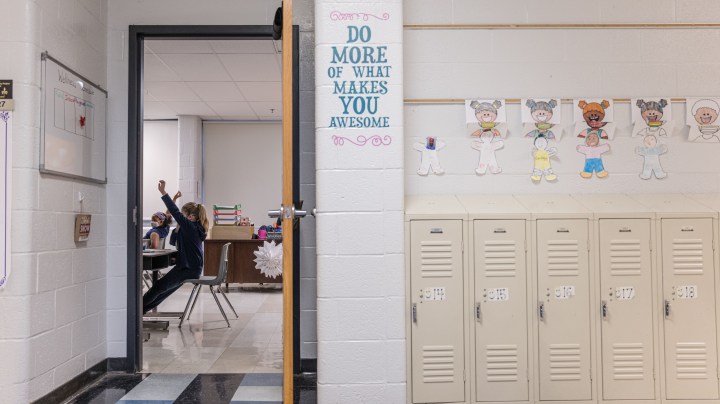
Air conditioning (or lack of it) can affect student performance
Air conditioning (or lack of it) can affect student performance

At Claremont Elementary School in Ossining, New York, fourth-grade teacher Stephanie Altobelli said when it gets really warm, a lot of kids just don’t come to school.
“It’s really hot, it’s miserable. They’re sweating and we do as best we can to get them drinks of water and tons of rest. We keep the lights off, whatever we can,” she said. “But just 24 bodies in one space brings a lot of heat.”
It’s been hot in much of the country this week, which might not be a problem if you have good-quality air conditioning. But many of America’s school buildings do not. When it’s hot, it’s harder to listen, teach and perform well on tests — basically, all the activities that are part of a regular school day. But during the pandemic, public schools received more than $189 billion in federal COVID relief funds, and one approved use of that money is improving air quality, including upgrading the air conditioning.
That’s what Altobelli’s district is doing. Her school was built in 1955, and most classrooms in the district don’t have AC.
“I think a lot of our buildings were built for different times,” said Ray Sanchez, superintendent of the district. “That’s not unique to Ossining. We see that across the country.”
The average public school in the U.S. is 44 years old, according to the most recent data from the National Center for Education Statistics. It also says about a third of schools report having a fair or poor heating, cooling or ventilation system.
That might mean no cooling at all. And we all perform better at certain temperatures. “The Goldilocks zone seems to be somewhere in the mid-60s,” said Jisung Park, a professor at the University of California, Los Angeles, and author of several studies that look at how heat affects students.
One study found the more hot days students experience, the less they learn overall.
“It’s a slow, hidden burn, if you will,” Park said. “These little disruptions to learning, maybe we don’t notice them on a day-to-day basis, but over time, they appear to add up to something meaningful.”
Some schools, including those in Ossining, are planning to put millions of their federal COVID relief dollars toward renovating their heating and cooling systems. That will have other benefits, according to Joshua Goodman, a professor of economics and education at Boston University who has worked with Jisung Park on heat research.
“Those improvements may actually improve student outcomes for multiple reasons beyond just pandemic-related issues,” Goodman said.
That could have ramifications for the larger economy. More comfortable students will become part of a better-educated workforce, which is a big contributor to growth.
There’s a lot happening in the world. Through it all, Marketplace is here for you.
You rely on Marketplace to break down the world’s events and tell you how it affects you in a fact-based, approachable way. We rely on your financial support to keep making that possible.
Your donation today powers the independent journalism that you rely on. For just $5/month, you can help sustain Marketplace so we can keep reporting on the things that matter to you.

















